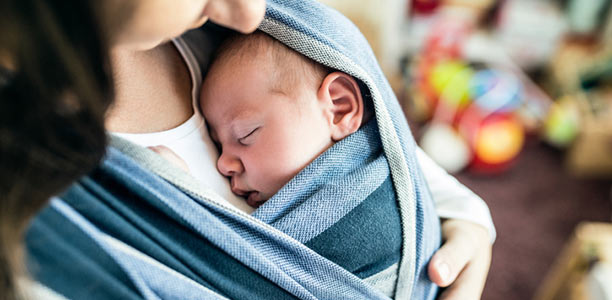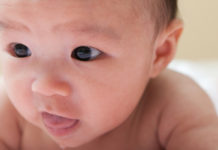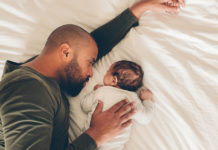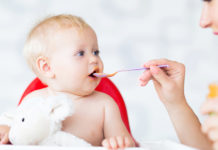New research from the Murdoch Children’s Research Institute (MCRI) has raised questions about the benefits of fitting hearing aids early to babies diagnosed with mild hearing loss.
The study, led by MCRI PhD student Peter Carew, showed clear benefits in children born with moderate hearing loss. However, they observed no evidence that language outcomes improved as a result of earlier diagnosis and amplification in those born with mild hearing loss.
The study examined language data collected over a 20-year period from four groups of a total of 146 children, aged five to eight, with mild to moderate bilateral hearing loss.
Over these two decades, age of detecting congenital hearing loss fell dramatically, from around 2 years of age in the early 1990s to around 2 months by the 2010s. This was in the context of Victoria moving from opportunistic detection in the early 1990s (offered only to individual newborns at risk of hearing loss) to the system that now exists, ie universal newborn hearing screening (offered to every newborn within days of birth). Universal newborn hearing screening aims to pick up moderate or more severe hearing losses, who clearly benefit from early detection. However, it also picks up many babies with milder losses, raising questions about whether and what treatment they need.
The children in the study were compared with a group without hearing loss. The research measured language, vocabulary, non-verbal IQ, child behaviour and quality of life.
Those children detected with mild hearing loss under the current system of detection (mature UNHS) had an age at fitting range of 2 months to 42 months. Two thirds of the sample was fitted with hearing aids by 5 months of age.
However, outcomes for children with mild losses did not seem to improve over time despite the dramatically earlier detection and aiding.
MCRI’s Peter Carew, the study’s lead author said “This contrasts to the “oldest” group, who were detected when there wasn’t a systematized approach to hearing loss detection. The earliest age of hearing aid fitting in this group was 10 months of age. 10% of this sample was fitted prior to the child’s first birthday.
“Therefore, children today are potentially being fitted with hearing aids for mild hearing loss up to 5 times (8 months) earlier than in the past, without significant improvement in their language outcomes.”
“Today, children born with mild hearing loss in both ears are often detected and fitted with hearing aids earlier than ever before,” Mr Carew said. “There is no clear evidence that this early detection and fitting is effective in improving language outcomes.”
“These results suggest that despite the best intentions made possible by universal newborn hearing screening, our current approach to treating children with mild loss is not producing consistent improvements across time,” he said.
Mr Carew emphasised providing hearing aids for low-level hearing loss was not causing any harm, but there isn’t any evidence the practice is actually benefiting children.
He said the research should prompt clinicians, parents and policy-makers to question current approaches to fitting hearing aids in very young babies with mild losses.
The best way to do this would be to establish a trial to compare children wearing hearing aids with those who do not, and measure language outcomes.
Paediatrician and MCRI researcher Dr Valerie Sung highlighted the need for further research in this area.
“Thanks to the wonderful parents and children who participate in research projects like the Victorian Childhood Hearing Impairment Longitudinal Databank (VicCHILD), we are able to start addressing many important unanswered questions, including whether babies with mild hearing loss should be fitted with hearing aids or not. We hope that we can continue the work of VicCHILD with more funding in the future.”
VicCHILD continues to invite families of children with hearing loss to take part in the project, which aims to help understand what leads to the best outcomes for these children.
“Under current practices, large numbers of children born with mild bilateral hearing loss will continue to be identified early,” Mr Carew said.
“There is a need for carefully constructed and controlled trials that compare systematic hearing aid provision to no provision, and that accurately measure usage.”
(Source: Murdoch Children’s Research Institute)










